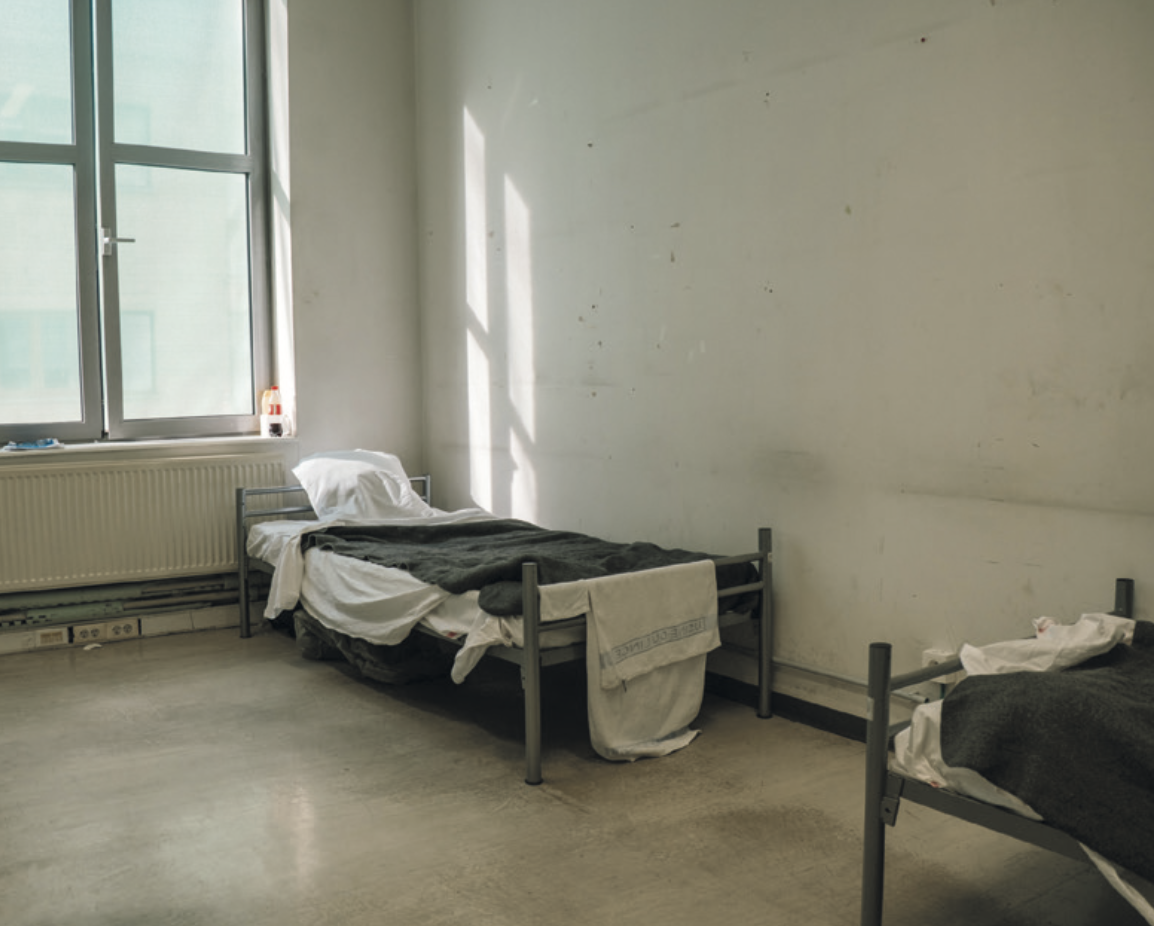
Policy of non-reception
Today, seven organizations, including humanitarian groups, are publishing the fifth edition of their Belgian report on the Policy of non-reception and its negative consequences for asylum seekers in Belgium. The report shows how Belgium's illegal non-reception policy for asylum seekers entered a new and alarming phase in 2025, with recent government measures further restricting access to reception and essential services for people seeking international protection.

Médecins Sans Frontières, Médecins du Monde, Vluchtelingenwerk Vlaanderen, CIRÉ, BelRefugees, Caritas International, and the Humanitarian Hub condemn Belgium's Policy of non-reception and its negative consequences for asylum seekers in our country. This policy does not resolve the humanitarian crisis, but institutionalizes it. Minister Van Bossuyt's recent statement that no asylum seekers are sleeping on the streets is completely untrue, as the seven organizations see on a daily basis.
A systematic policy of non-acceptance
Despite more than 15,000 convictions handed down by national and international courts, the Belgian federal government is further intensifying its illegal strategy of systematic exclusion, making it the most restrictive migration policy in Belgium's history. Thousands of people remain homeless and without access to healthcare and social support.
The measures taken by the new “Arizona” coalition government, formed in January 2025, include reducing the number of reception places, the systematic exclusion of certain groups (in particular single men and asylum seekers with protection status in another EU country, known as “M status”) and the complete elimination of social services for many asylum seekers.
These changes, which were adopted by Parliament in July and have been in force since August, have nevertheless been widely criticized by the Council of State, the United Nations Refugee Agency (UNHCR), and numerous civil society organizations.
The consequences are dramatic. The Belgian government is unscrupulously ignoring its legal responsibilities, with heartbreaking consequences in the following areas, among others:
- Housing: Less than 1 in 10 asylum seekers (9%) using the Humanitarian Hub in Brussels are housed in a Fedasil center. The vast majority of them sleep on the streets, in emergency shelters, or in squats, with waiting times for emergency accommodation often longer than the length of the stay offered.
- Healthcare: Access to medical care is severely limited. Humanitarian organizations report that nearly 9 out of 10 (88%) homeless asylum seekers have health problems directly related to their precarious living conditions, particularly skin conditions, respiratory infections, and untreated pain.
- Mental health: Psychological well-being is severely affected. The vast majority of asylum seekers seek help because they are in psychological distress, with many cases of post-traumatic stress, depression, and anxiety. Specialized care is largely inaccessible.
- Legal and social support: Homeless asylum seekers often lack basic information about their rights and face complex procedures without legal assistance.
- Unaccompanied minors in distress: unaccompanied minors are particularly vulnerable. Many avoid official shelters due to mistrust of the authorities, leading to overcrowding in alternative shelters and increased exposure to high-risk environments. Medical studies indicate a high percentage of minors suffering from malnutrition and health problems.
A call for immediate action
The government's stated goal of making Belgium less “attractive” to asylum seekers has led to increased hardship and the institutionalization of a humanitarian crisis.
Civil society organizations, the Council of State, the UNHCR, and the Council of Europe have all called for urgent action, including:
- Respecting the right to reception and a dignified life, as enshrined in international and Belgian law;
- Significantly increasing reception capacity;
- Maintaining social support channels for asylum seekers.
Conclusion
The current policy of non-reception is unacceptable. As long as people are left on the streets and court decisions are not enforced, Belgium will continue to deliberately violate its legal and moral obligations. It is time to end the policy of deterrence towards asylum seekers and to implement a humane, dignified, and rights-based reception policy.